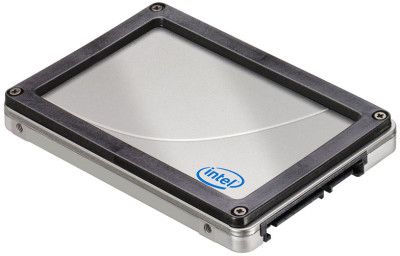- Qualcomm Launches Snapdragon 4 Gen 2 Mobile Platform
- AMD Launches Ryzen PRO 7000 Series Mobile & Desktop Platform
- Intel Launches Sleek Single-Slot Arc Pro A60 Workstation Graphics Card
- NVIDIA Announces Latest Ada Lovelace Additions: GeForce RTX 4060 Ti & RTX 4060
- Maxon Redshift With AMD Radeon GPU Rendering Support Now Available
Is it Possible to Hear an SSD?
When someone considers an SSD purchase, there can be a couple of different reasons for it. The most common comes down to performance, where mechanical drives are just left in the dust. For others, though, an SSD is a perfect complement to a quiet PC. After all, no moving parts means no noise. Or does it?
Our friends at Silent PC Review received a detailed letter from a reader detailing that he can indeed hear certain SSDs, and in some cases, the problem is severe enough that he’s forced to get rid of such models. The reason is due to Tinnitus, a hearing issue where sufferers can sometimes hear noise that’s non-existent… sometimes it’s a ringing noise, sometimes it’s a hum. For any sufferer, the effect is subjective, so it can’t be easily measured.
Picture being punched in the head hard enough that you begin to hear sounds that simply aren’t there. This is somewhat similar, except here, an SSD simply being in use can trigger the problem. Sometimes it can be an annoyance, while other times it can be painful. In the particular case of Intel’s G2 SSD models, the problem is so severe, that this one reader had to simply give them up. Oddly, the G1 models had no such problem.
The reason boils down to electronic noise, and even if you aren’t a Tinnitus sufferer, you’re likely aware that electronics can emit high-frequency noise that sometimes is extremely difficult to hear unless the rest of the room is dead quiet. For whatever reason, the problem is bad on some SSDs and not on others, and can be severe for Tinnitus suffers.
It might be rare to see a Tinnitus sufferer quite this sensitive, but it’s estimated by the American Tinnitus Association that some 50 million people in the US alone have such symptoms. It’s more common later in life, but can also be developed over time due to prolonged harm done to your ear (ahem, I think I’ll turn these headphones down).
I’d be interested to see if the likes if Intel and others could investigate this issue though, and make sure that it simply doesn’t exist in the future. Some type of shielding might be useful, but whether or not any company would sink so much money into something like that for a problem that’s not quite known about, it’s hard to say.

“After first determining this problem, I initially thought it was with the SATA interface, as spinning SATA drives cause a similar problem. But of course it’s difficult to divorce the HD noise from the electronic noise in this situation. I have had some luck with reducing the noise level with the hard drives using a Scythe Smart Drive 2.5 enclosure, but it doesn’t seem to impact the Intel G2 noise at all! Nor does any kind of shielding seem to work. It’s just constant and pervasive throughout the house when they are on.




